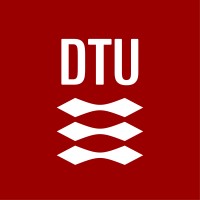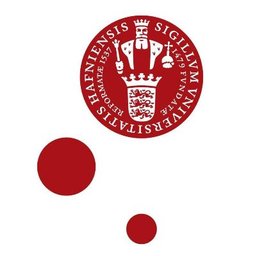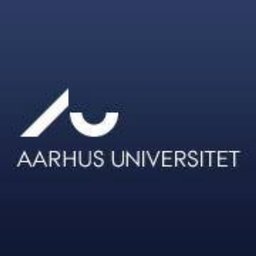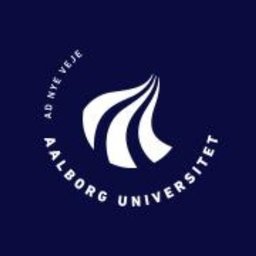Join the Green Energy Transition!
Are you eager to contribute to the future of sustainable mobility and energy systems? Are you looking to build a career in cutting-edge R&D or academia? We invite applications for a 2-year Postdoctoral position focused on modeling the flexibility potential of electric vehicle (EV) charging clusters and exploring their synergies with distributed renewable energy sources.
This position is part of the European research project AHEAD (AI-informed Holistic Electric Vehicles Integration Approaches for Distribution Grids), which brings together 21 partners from 11 countries. The project aims to develop a simulation environment that optimally locates EV charging stations and integrates them into the power grid using advanced AI models. It will also test innovative smart charging algorithms and technologies—including wireless and battery-buffered fast charging—across three demonstration sites. https://horizon-ahead.eu/
Responsibilities and qualifications
About the Role
As a Postdoc, you will:
- Quantify the flexibility potential of public and private EV charging hubs, including light- and heavy-duty vehicles.
- Investigate synergies between EV charging and renewable energy generation and propose methods to exploit them.
- Assess the combined impact of EV charging and distributed generation on the power system.
- Contribute to the optimal siting of charging infrastructure to balance user needs and grid constraints.
- Explore and evaluate innovative charging technologies that support flexibility and grid integration.
You will also be involved in project coordination, supervision of MSc and PhD students, and educational activities. Active participation in fundraising and promotion of DTU’s research initiatives is expected.
Your Qualifications
Required:
- PhD in Electrical Engineering or a related field with a focus on energy systems.
- Strong skills in data analysis, visualization, and applied statistics.
- Knowledge of EV technologies and innovative charging systems.
- Proficiency in MATLAB and/or Python.
- Experience in student supervision and teaching.
Preferred:
- Experience in dynamic modeling and simulation of power system components.
- Familiarity with model predictive control, machine learning, or reinforcement learning.
- Experience with IoT, edge computing, and cloud integration.
- Proven ability to contribute to research funding proposals.
Personal Attributes:
- Self-motivated and eager to learn.
- Strong communication skills in English (written and spoken).
- Ability to work independently and collaboratively in a project team.
- Capable of presenting research in reports and scientific publications.
Your Workplace
You will be affiliated with the Section on E-Mobility and Prosumer Integration within the Division of Power and Energy Systems at DTU Wind and Energy Systems. The section conducts internationally leading research in:
- EV technologies and charging infrastructure
- Flexibility and integration of prosumers
- Advanced power electronics and hybrid AC-DC systems
The team includes 23 researchers from 11 countries, and you’ll collaborate with neighboring sections working on distributed energy systems, hybrid power plants, smart grids, and market design.
As a formal qualification, you must hold a PhD degree (or equivalent).
We offer
DTU is a leading technical university globally recognized for the excellence of its research, education, innovation and scientific advice. We offer a rewarding and challenging job in an international environment. We strive for academic excellence in an environment characterized by collegial respect and academic freedom tempered by responsibility.
- A dynamic, international, and inclusive research environment
- Opportunities to collaborate with top researchers and industry partners
- Access to cutting-edge facilities and real-world data
- A strong foundation for a career in academia or industry
Salary and terms of employment
The appointment will be based on the collective agreement with the Danish Confederation of Professional Associations. The allowance will be agreed upon with the relevant union.
The period of employment is 2 years. Your workplace will be located at DTU Risø Campus, Roskilde, Denmark.
You can read more about career paths at DTU here.
Further information
Further information may be obtained from Professor Mattia Marinelli ([email protected]) or Head of Section, Senior Researcher Peter Bach Andersen ([email protected]).
If you are applying from abroad, you may find useful information on working in Denmark and at DTU at DTU – Moving to Denmark.
Application procedure
Your complete online application must be submitted no later than 1 September 2025 (23:59 Danish time).
Applications must be submitted as one PDF file containing all materials to be given consideration. To apply, please open the link "Apply now", fill out the online application form, and attach all your materials in English in one PDF file. The file must include:
- Application (cover letter)
- CV
- Academic Diplomas (MSc/PhD – in English)
- List of publications
- A 2-page research statement (max 1000 words), outlining relevant achievements, methodology, and research objectives
Applications received after the deadline will not be considered.
All interested candidates irrespective of age, gender, disability, race, religion or ethnic background are encouraged to apply. As DTU works with research in critical technology, which is subject to special rules for security and export control, open-source background checks may be conducted on qualified candidates for the position.
The Department of Wind and Energy Systems is one of the world’s largest centers of wind energy and energy systems research and knowledge, with a staff of more than 400 people from 37 countries working in research, innovation, research-based consulting and education. DTU Wind and Energy Systems has approximately 90 PhD students. The department’s cross-disciplinary research is organized through strategic research programmes that collaborate with Danish and international universities, research institutions and organizations, as well as the wind industry.
Technology for people
DTU develops technology for people. With our international elite research and study programmes, we are helping to create a better world and to solve the global challenges formulated in the UN’s 17 Sustainable Development Goals. Hans Christian Ørsted founded DTU in 1829 with a clear mission to develop and create value using science and engineering to benefit society. That mission lives on today. DTU has 13,500 students and 6,000 employees. We work in an international atmosphere and have an inclusive, evolving, and informal working environment. DTU has campuses in all parts of Denmark and in Greenland, and we collaborate with the best universities around the world.





